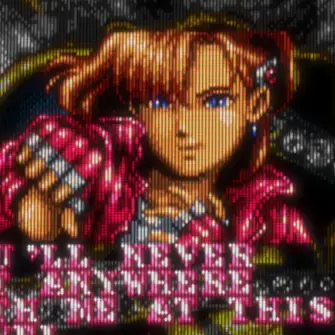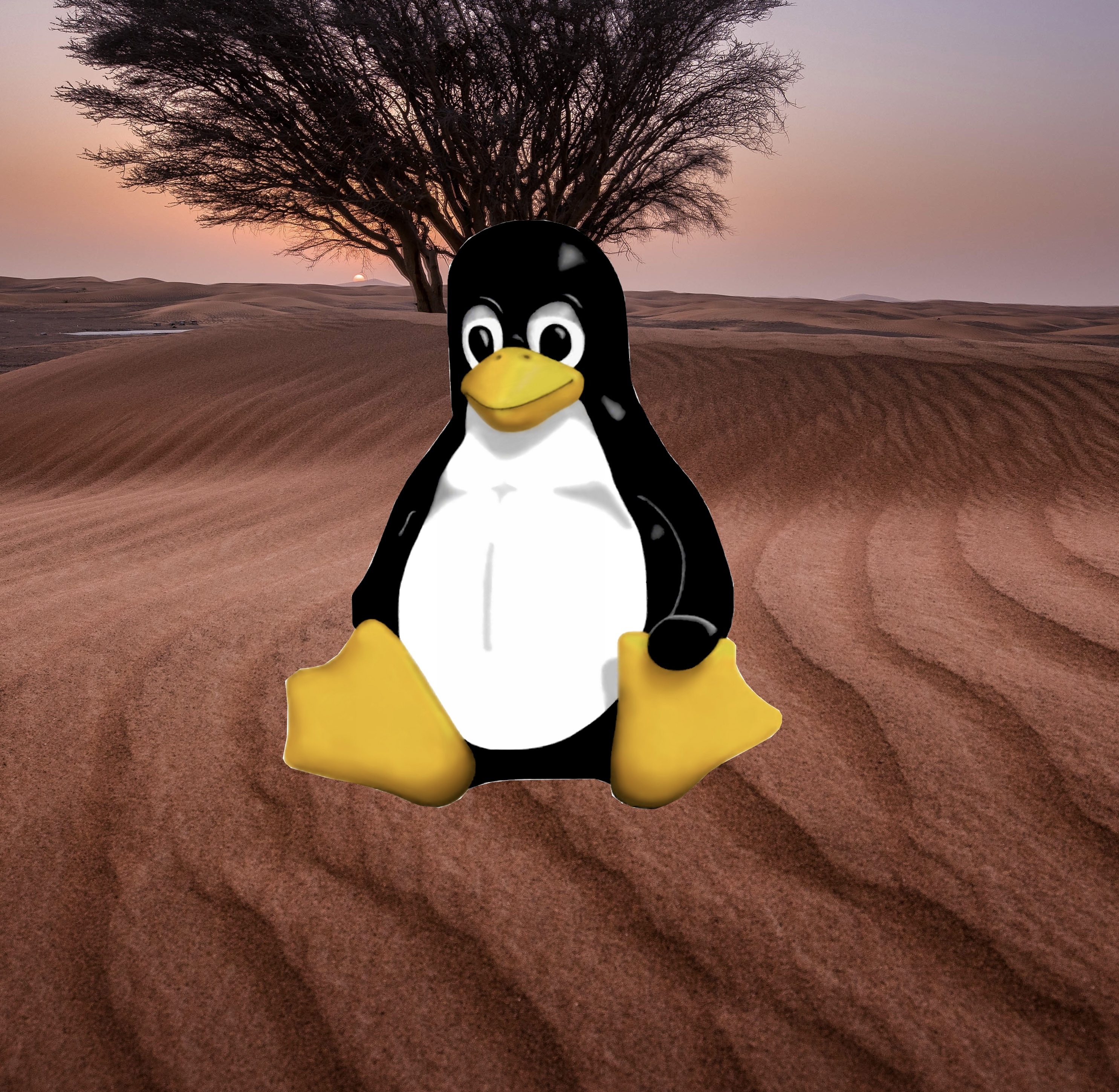For context:
I’ve been using Linux since 2000. Started with Mandrake Linux (Helios?), then I moved to Ubuntu in 2004 and alternated between Ubuntu, Kubuntu, Ubuntu MATE for a time until I settled with Kubuntu for the last few years.
Ubuntu has been rock solid for me for the past 20 years and I’m used to the APT package management and Ubuntu/Debian environment overall with all the various services and configs, setups and release cycles, etc. The stability allows me to enjoy my spare time playing games and doing other important tasks instead of troubleshooting my system and figuring out how to make something work. Ubuntu has been awesome in that regard.
I’ve also been dual-booting this whole time with Windows. Gaming on Linux simply wasn’t up to snuff up until very recently with Steam working on Wine and Proton for the Steam Deck and Bottles, which makes running Windows games on Linux almost comparable to Windows.
Windows 10 was a great OS, except for a few flaws and privacy issues with the introduction of mandatory Microsoft accounts and One Drive integration. But you could work around those things. It was supposed to be the last Windows we would have to install with perpetual rolling releases, but apparently they changed their minds about that. Windows 11 was released and reading about it gives me nightmares. Using it for work also has been an incredibly buggy and frustrating experience. The invasion of privacy, data collection, screen monitoring and AI integration plus the additional advertisement are all reasons for which I will never install this OS on my personal computer. And some of these features have started to leak into Windows 10.
So I’ve made up my mind. I’m wiping Windows from my PC and will be running Linux only. I believe it’s become good enough to use as a daily driver for a home gaming desktop and for productivity. But… Which distribution should I choose?
The dilemma:
There’s been a whole slew of new Linux distributions that have come out lately. Some have been early in the Linux gaming aspect such as POP! OS. Others have tried to become a solid replacement for the default immutable Steam OS such as Bazzite. And there are now some pretty awesome sounding gaming-focused distros such as Nobara. And that’s on top of the various existing Ubuntu flavors, Fedora’s spins, OpenSuse and the many Arch variants that almost seem to pop up monthly.
I’ve been shopping around for a distribution to become my daily driver from now until who knows when. I’m expecting to stick to that distro as long as possible. Here’s some of the things that I am looking for:
- Not immutable : I find this to be adapted for devices like tablets, IoT devices and handhelds instead of an actual PC. I’ll need to be able to change my system configs as I please and an Immutable distro seems like a pain in the butt to deal with that.
- Rock solid : This is the most important aspect and is why a lot of the Arch or other bleeding edge distros won’t do. (With some exceptions)
- Hardware support : The second most important aspect. I think that’s pretty much covered by most popular distros, but some have better support than others. Especially for ease of getting the right drivers. (Especially for NVidia GPUs, or gaming controllers and devices.)
- Performance : Most popular distros offer ok performance, but some have been enhanced to provide improved performance according to the hardware. This is a very big nice to have, especially for gaming.
- Desktop choice : I’m really not a big fan of Gnome 3. It seems nobody really is. Many Gnome based distros come with quality of life extensions out of the box to fix that. Not a big fan of GTK apps’ UI ergonomics either. That’s why I prefer KDE over Gnome or Cinnamon. Budgie seems like a great alternative as well. Also having a PowerToys-style FancyZones tiling system is a big big plus (KDE has that OOTB)
- Applications : The thing I love about Ubuntu is the amount of available applications in their repos. I’m hoping to have the same availability in my next distribution.
- Online community/support : Having a great online support community is very important. The more users, the larger the knowledge base and the easier you can find answers to questions to troubleshoot problems.
- Online services integration : Optional but a very nice to have would be to have integration with Google apps like GMail, Calendar, Keep and Google Drive to name a few.
- Customization : As funny as this sounds, I want to use the desktop in its most vanilla form as possible with as few customisations as possible. Over time I found that having extra customisations like extensions, applets, etc tends to break things because of lack of support over time. It’s also more difficult to troubleshoot when very few people are using them.
The distributions that ended up meeting my requirements are the following in order of preferences :
- Kubuntu : So far its been working great for gaming but I think there could be some performance improvements. It’s my first choice because I’m just so comfortable with it already. Zero effort, but with some compromises in performance.
- Nobara with KDE Plasma : This looks solid and ticks all the requirements. I think there’s some amount of learning to do for using YUM/RPM packages and to understand some of the customisations, but I think this effort will be minimal. I am concerned about long term support however since this is a fairly new distro supported by individuals.
- Ubuntu Budgie : I really like this DE, very simple but elegant. But, like Kubuntu, I don’t know how it’s going to fare performance wise. And I don’t know what kind of tools there are to configure gaming controllers, etc.
- Ubuntu (I’m willing to deal with Gnome 3 for simplicity’s sake)
- Fedora KDE Plasma spin : Everybody is raving about Fedora so maybe I’ll give it a shot as an Ubuntu replacement.
ManjaroEndeavour OS with KDE desktop :Possibly the only Arch distro I’m willing to install because they focus on stability, however learning about the packaging system and configs/environment feels like a drag. But with the great community and documentation I’m willing to make an effort for this one.
What are your thoughts on this? What are your recommendations based on my requirements?
EDIT:
Thank you very much for everyone’s input. I’ve spent a good part of the day installing distros in a VM to check out some of your suggestions and reading more about my choices.
I can’t believe I am saying this, but I am reevaluating my choice of using Kubuntu. After some reading I have found out that Ubuntu and it’s flavors will not be supporting flatpaks starting in 23.04. And there are several known problems with snap, such as serious performance issues. A task that would take 1-5s as a regular .deb installed app, would take up to 10 times that time to complete. Canonical is also working to modify apt to use snaps instead of installed .deb packages. They are aggressively pushing snaps to a point where they’ll want to replace the majority of the software with snaps eventually.
Yeah there’s security features built-in and all, which flatpaks don’t necessarily have. And the security is tighter around Canonical’s snap repos compared to flathub for example. But I don’t know if I’m ready to move to that new way of doing things. And Canonical is going against what the community wants.
I don’t know. I think I’m more confused now that I was when I started…
For gaming you want the latest updates. Of all the major distros, only Arch, Suse and Fedora provide that. Arch requires you to learn to about and fix breakage. Fedora has a gaming spin which works like a Steam Deck: Bazzite.
I’ve distro hopped between 10+ distros, and Bazzite has been the only one that gave me a rock solid stability and latest drivers simultaneously. It’s not purely immutable, Fedora calls it Atomic.
I suggest you try it, and tell me if there was anything you couldn’t do.
Also: I don’t support Canonical’s walled garden
I hear a lot of people say that you need bleeding edge distros for gaming. But the Steam Deck uses and old Debian release and it works just fine. Granted they have their own proprietary drivers and all.
Gaming on Ubuntu works just fine. Others reported using Debian stable too and it’s fine. I don’t think you need to be bleeding edge. In fact, I think it might bring instability. You gotta make a compromise between the two in my opinion.
I have to add, regarding Canonical’s walled garden, that’s not necessarily a bad thing for the vast majority of people out there. It might even be a big advantage, espeically for non-tech people.
I’ve enjoyed Ubuntu distros for 20 years. But it’s Canonical’s attitude that’s off putting.
By the way, I’ve tried Bazzite and it’s too bloated with too much stuff OOTB. But it’s great though otherwise. I’m a bit skeptical about immutable distros however.
Steam OS was Debian based in the Steam Machine era, Steam Deck uses an immutable Arch based image, and it’s not rolling release. They moved to Arch because Debian took ages to update. Now they release quick and stable updates, That’s the ideal compromise.
Regular Arch is bleeding edge, Debian is old. Fedora sits in the middle. And Bazzite makes it rock solid.
About the Bloat: after installing, you are greeting by a first run wizard, where you choose what gets installed. If you don’t install anything else, you are left with KDE & Steam, nothing more. Where’s the boat?
Steamos on the steam deck is arch based, the original steam os on steam machines were Debian based
Ah? Oh yeah! Hey thanks for the clarification.
Exactly, better to have latest driver and DE since a lot is going on right now in linux gaming.
So you want a rolling update distribution (like Arch)
I personally went for arch based endeavourOS, since I love to install my apps using AUR
For rock solid rolling release distribution, I would point to openSuse tumbleweed, and if daily updates are too much, you can go to OpenSuse slowEoll or fedora
If you plan to use flatpaks only anyway, then distribution does not really matter, but then you may have problems with some apps that don’t just work in sandboxed mode and you would need flatSeal app to set the right to read/write files outside of the sandbox. (Eg. wine/proton apps that need access to mounted .iso)
The way Fedora has immutable set up allows you to layer packages on top of a base, and your home directory and etc are both writable. It might be less of a pain in the butt than you think!
Yes I have to revisit this. I may have some bad preconceptions about immutable distros.
What if I have basically the same requirements as OP but for gaming only Minecraft has to work (which I assume isn’t an issue on any distro)
i7 11800h and Nvidia RTX 3060 Laptop if that matters
Two options: java edition, or mobile bedrock. Both have launchers available.
Realistically one option: Java edition (why would I play bedrock)
(But I was asking for a distro recommendation, not a Minecraft recommendations. Ty though.)
I’m assuming when my only game is Minecraft I don’t need bleeding edge support, right? Just any stable linux distro should work fine?
Absolutely, what’s the chance of Java Edition requiring the latest updates to VRR / HDR / Mesa / etc. ?
This might not help, but I’d seriously recommend reconsidering Arch derivatives.
I’ve been 100% Linux for almost 2 years now, with Garuda Linux on my primary desktop and Fedora on my laptop. I’ve had zero major issues with Garuda (and very few minor ones, to the point I can’t think of any specific problems in the moment), gaming performance has been fantastic, and the availability of software in the AUR is nothing short of amazing.
In my experience, keeping up with updates is not at all an impediment to use, and I’ve yet to have stability issues of any kind. I’ve been seriously considering replacing Fedora with Garuda on my laptop, the experience has been so smooth.
Just stay away from Manjaro. I feel like Arch fan-boys being dicks and people recommending Manjaro to new Linux converts are the only two problems with Arch (or at least its derivite distros, I haven’t raw dogged vanilla Arch before).
I think it’s important to keep in mind here that there is a very marked difference between vanilla Arch and its derivatives. A lot of derivatives will set up a lot of base system software with sensible defaults, whereas with vanilla Arch it’s often up to you to find out that you need that software, and then you also need to figure out a lot of configuration. Not having to do that saves you from a lot of issues.
Sounds about like I would expect. I do feel like a lot of the “Core” distros are similar though, although not to the same degree. You get more “out of the box” from something like Mint or PopOS than you do straight Debian, for example.
The derivative distros i’ve tried come with a lot of help getting things setup just how you want/need, a lot of it GUI based which is nice for new converts.
+1 for Fedora KDE. I’ve been daily driving it for 2 years now and its given me very little problems. I stopped using Windows about 5 years ago now and haven’t looked back, and after distro hopping for a bit, I’m pretty satisfied with my experience with Fedora. Initial setup can take a little bit because theres some repos you need to add/enable to get nonfree software (including video/audio codecs that basically every website ever uses), but once you do that its pretty solid. You get pretty up-to-date software without it being so new that things break after every other update. It strikes a nice balance.
However, if you’re familiar and comfortable with Ubuntu, you’ll likely be just fine sticking with that. You probably won’t notice huge performance differences between distros. It sounds like the bigger concern is if you’re safe to just nuke Windows and I’m not going to be the one to discourage you from doing that. Up to you if you want to try something new or not.
Same boat, fedora + kde, solid experience all around. Love Fedora and really enjoying KDE, though im facing some minor gripe on my laptop with the power management which always seems to kick in max performance when plugged in despite all possible tweaks I have tried (tlp, powertop and the native power management settings).
Thanks for the advice!
Yeah, in that case I might as well stick with Kubuntu. Especially since it provides the option to install proprietary drivers and formats easily at install time and also with a few custom tools provided by Canonical.
The performance boost I was mentioning was about Nobara, which provides a few extra kernel patches and configs to allow for increased performance on gaming hardware. But, if it’s not a big enough difference, I’ll stick with Kubuntu for sure. Or might even go with Budgie. Their DE looks elegant and simple with all the necessities.
Nobara is nice.
Yeah, but I did a bit more reading on it and its flaw is that it only has one maintainer. This is bad for long term support. I think I’ll stick with something more mainstream after all.
I just started using Bazzite. It’s my second attempt at a Linux gaming setup (Pop_OS was first, Bazzite is working out much better).
What made you lean away from Bazzite, if you don’t mind expanding on that?
It’s an immutable OS. That’s not what I’m looking for. I find it too restrictive. Plus it comes loaded with way too much gaming software. I don’t need all that stuff. I’d rather install as I need.
Thank you for the reply.
I’m just getting into these things. And immutability seems like a double edged sword.
Re the flatpak issue, what you linked is just saying that flatpak won’t be a default installed program and packages provided by flatpaks won’t be officially supported by Ubuntu support as of 23.03. I don’t think this effects your use of Ubuntu in any way. If you want to use flatpaks, just install the program. It will still be packaged in the Ubuntu repositories. 23.04 was over a year ago. I still use flatpak without a problem on my kubuntu 24.04 system. It’s just a one time thing to do
sudo apt-get install flatpakand maybe a second package for KDE’s flatpak packagekit back end and it’s like canonical never made that decision.The push of snaps instead of debs is a bit more concerning because it removes the deb as an option in the official repositories. But as of right now I think only Mozilla software has this happening? If your timeline is 5-10 years though, this may be more of an issue depending on how hard canonical pushes snaps and how large their downsides remain
Great reply! Thank you for the clarification.
What’s your opinion on Canonical’s behavior with snaps? Like having Mozilla software exclusively as snaps? Are people making too much of a big deal?
I’m a die-hard Ubuntu fan, but just use whatever works for you.
Same. But I’ve been questioning my loyalty lately because of their obsession with Snap. Canonical has been increasingly imposing their business decisions on their users and it’s a bit off putting.
I’m considering moving to Fedora or maybe even OpenSuse. Possibly even Endeavor! I can’t believe I’d ever consider an Arch based distro.
Honestly this research has left me even more indecisive about what to install. But I have an increasingly big feeling that I might be ditching Ubuntu. I don’t think anyone should be messing with APT in such a way that it would end up installing snap packages instead of debian packages. This is too much.
They should simply provide the option to use snaps to users in the app store and not enforce it like with some apps, such as Firefox and Thunderbird.
You’re wrong about immutable, nixos is extremely configurable, I’d say even more than a normal distro
https://www.howtogeek.com/why-i-use-nixos-and-why-you-should-too/
check them out, I actually think there’s no downside these days, I say this with a customized down to every detail setup that I moved from arch, no reason not to go immutable these days if you’re new to linux especially
Since your main priority is stability, I’d suggest either Debian Stable or Mint. Debian Stable is rock solid, but the software is ancient; Mint is a good compromise. They both have a nice package selection.
The reason why I don’t recommend Ubuntu itself is snaps. Huge downloads with lots of wasted disk space, wasted memory, less user control, mismatching themes, larger loading times… urgh.
Desktop environment is such a personal matter that it’s hard to say which one would be the best for you. I’m a big fan of MATE - it’s small, it’s nice, you can reasonably customise it without new extensions or applets. Xfce would be also a good performance-focused choice.
I agree about the Snaps. But isn’t it kind of the same deal with Flatpaks? The whole objective is to deliver the application with all its dependencies packaged in, and running in a pseudo fenced environment. So of course it will take up more storage space. The speed issue is because some of these are compressed to take up less space. It’s a compromise.
Worst case, you can disable snaps easily. But, I’ve found using Snaps and Flakpaks somewhat easier, especially for when it comes to removing the software. I dunno. I might stick with Kubuntu or even Ubuntu Budgie. (Still testing some distros out in a VM.)
The problem is that Ubuntu overuses snaps, even when there are completely acceptable .deb alternatives, that will perform consistently better; typically distros using appimage and flatpak don’t do the same.
That said if this isn’t a big deal for you Ubuntu might be still an option. As the saying goes, better the devil that we know.
Yeah you’re right. It’s funny that you answer now because I just read about what they plan to do here. It’s pretty disappointing.
I don’t know if I’ll be continuing with Kubuntu or any Ubuntu based distro at this point.
I’ve played around with OpenSuse Tumbleweed today and it looks rock solid. The YaST app looks like it has a lot of extra configs.
Fedora KDE looks like a good alternative also. But people expressed some frustration about installing 3rd party codecs and such. I think OpenSuse has an option to easily install those.
I can’t believe I’m considering moving away from Ubuntu after 20 years…
I can’t believe I’m considering moving away from Ubuntu after 20 years…
The good news is that all distros are pretty much similar to each other, so you can transpose most of those two decades of experience to any other distro that you might want to use. Typically the key differences are
- defaults - including the desktop environment
- package manager and format - YaST vs. APT vs. RPM etc.
- stability vs. newer software continuum - different distros aim for one, another, or a balance between both
I’ve been thinking the same thing lately, and based on my recent Linux usage on my other machines, I would probably pick something Fedora based with KDE. I’ve been using Arch on my “work” laptop and it’s been really fine and fun, but also a LOT of work (especially when I break something myself). Having a ton of very up to date packages to install, plus the AUR and Flatpaks to shore up anything that might be missing makes for a very “compatible” system. And of course, the freedom and courage to set it up just exactly the way I want.
I used Linux Mint for several years, it’s the one I can say I’m most comfortable with. If I had to set up another low power laptop or a computer for a family member I’d either use that or MX Linux. They just don’t break. I have also tried Fedora for a short time, and it made me start liking KDE Plasma, and it was honestly the easiest one to set up for Steam out of the box. And it had more in variety and more up to date packages than Mint, and also easily augmentable with Flatpaks for what’s missing. OpenSUSE was similar, but the package manager was excruciatingly slow, and there were no good mirrors for fast downloads, dropped that very quickly.
Although, overall from your past experience in the post and other responses in the thread, I think you’ll do just fine with Kubuntu. You’re already plenty familiar with how to use it and how to set it up the way you need it to. I’ve been considering Nobara for my gaming PC as basically a better Fedora, but I’m afraid of projects with so few people taking care of them fizzling out in a couple years, and it’s not as simple as just replacing it with base Fedora if that happens. So yeah, my personal choices would be Arch, Mint or Fedora. But my case is not the same as yours.
I’ve been considering Nobara for my gaming PC as basically a better Fedora, but I’m afraid of projects with so few people taking care of them fizzling out in a couple years, and it’s not as simple as just replacing it with base Fedora if that happens.
Yeah. Doing a bit more digging after I posted this, that’s what I found out also. It’s only maintained by one guy??? That doesn’t sound too good. Also, reading some Reddit posts, it looks like it ain’t all that great actually. People are recommending using more mainstream distributions instead of “fringe distros”.
Also, a few in this thread also advised against installing Manjaro due to breakage.
Yeah, I think I’ll just stick with Kubuntu. I’m also considering Ubuntu Budgie. The desktop looks very clean and simple and not too complex. This is what I loved about Gnome. The amount of personalization isn’t excessive to a point you can break your DE, which is something I find KDE Plasma to be guilty of. But Budgie isn’t widely used so it’ll be harder to find support if something breaks. I might just add the DE on the side alongside KDE Plasma.
So bottom line: Kubuntu will probably be my first choice.
Didn’t read. Install CachyOS.
Thanks but no thanks. There’s a lot of fringe Arch based distros out there with very little amount of support an no community and that’s specifically what I don’t want had you bothered to read. Though I can’t blame you. That’s a long ass post.
Gentoo
Hahahahahaha
I’ve always associated Gentoo users with car tuners buying a 1998 Honda Civic and tuning the crap out of it for max performance. Sure the car will look rad with all the big spoilers, neat paint job and rims with parts that provide an amazing performance that pushes the car’s limits. But you’ll have spent a few years building it.
No offense. I do admire the work that goes into customizing and compiling your whole OS that way, but it’s not my cup of tea.
Jokes aside, you can do different stage installs where you don’t have to compile the whole OS. However I feel like the quality has dropped during the past few years and it requires too much tinkering. Back when everything was on spinning rust, the performance difference was very noticeable though.
Nice list, though I would remove Manjaro from that. Manjaro is far from stable, they just delay Arch packages without even testing and it will bork itself in no time or will cause some problems at least.
Anyway, I see you have included Fedora based, so I would like to suggest OpenSUSE Tumbleweed. I installed it on my sister’s PC and she’s been happily using it for some time now. Previously she borked Manjaro and brake updates on Pop OS just by using the system via GUI. That didn’t happen on Tumbleweed yet and I don’t think it will. Even if something would happen, she can revert everything by selecting a recovery image from GRUB and continue using it.
Interesting!
Try Endeavour OS, its like Manjaro but less problematic
Yeah, actually I think I might have had those two mixed up. I think what I meant was Endeavour.
+1 being happy on Endeavour OS for a year of two now.
Really? I have some questions:
- How’s stability? Have you had any issues overtime?
- How’s support for gaming?
- What about security? I know Ubuntu is very strict on that aspect which is why I trust the packages that are delivered. But what about Arch/Endeavour? Especially regarding AUR?
Stability is really good. No real big issues overtime, running BTRFS and Timeshift. There are some minor problems here and there but more to do with KDE or Arch being Arch I suppose, nothing that stopped me from having a non-functional system.
Not sure what you expect in terms of “support for gaming”, It’s Arch-based so mostly you’re on your own to do that, not from the distro focus itself but everything has worked so far for me.
I don’t often use the AUR, most packages come from flatpak if I can or the extra repo from Arch/Endeavour which is trustee packages by default. I added the CHAOTIC AUR to get binaries instead to get faster updates but didn’t replace all my packages with them from there.
I’m not sure what performance improvements you’re talking about. As far as I’m aware, the difference between distros on performance is extremely minimal. What does matter is how up to date the DE is in the distribution provided package. For example, I wanted some nvidia+Wayland improvements that were only in kwin 6.1, and so I switched from kubuntu to neon in order to get them (and also definitely sacrificed some stability since more broken packages/combinations get pushed to users than in base ubuntu). It’s also possible that the kernel version might matter in some cases, but I haven’t run into this personally.
I think the main differences between distros is how apps are packaged and the defaults provided, and if you’re most comfortable with apt based systems, I’m not sure what benefit there’s going to be to switching (other than the joy in tinkering and learning something new, which can be fun in its own right).
For some users less experienced with linux, the initial effort required to setup Ubuntu for gaming (installing graphics drivers/possibly setting kernel options, etc) might push someone toward a distribution that removes that barrier, but the end state is going to be basically identical to whatever you’ve setup yourself.
The choice between distributions is probably more ‘what do I want the process to getting to my desired end state to be like’ and less ‘how do I want the computer to run’.
I’m not sure what performance improvements you’re talking about. As far as I’m aware, the difference between distros on performance is extremely minimal.
Maybe. But according to the Nobara homepage, they have added a number of kernel patches to the kernel and other performance tweaks that’s provided with their distro out of the box. This could be an advantage for a gaming-focused PC use. From what I hear, these little extras can provide quite a few more frames per second
And as far as the whole X11 vs Wayland thing, as long as everything works I’ll be happy. And for now, that seems to be with X11 until absolutely everything works with Wayland, which is not the case from what I read online.
The difference between Debian/Ubuntu and RedHat/Fedora isn’t huge. APT and YUM work fairly the same way. I don’t think that’s a big learning curve, especially since I’ve worked with YUM in the past for work. And I’d be sacrificing Snaps which isn’t a big deal for me.
All those patches seem like nice things to have, but are more focused on adding hardware support and working around bugs in software/other people’s implementations. If you have one of the effected GPUs/games/etc, then those patches probably make a huge difference, but I’d guess there won’t be noticeable frame rate differences on most systems. I have not tested this claim though, so maybe something on there makes a big difference. What’s nice is all the packaging stuff they’ve done to make setting things up correctly easily, not necessarily most of the changes themselves. Like on my system I compile dxvk and various wine nvidia libs myself since Ubuntu doesn’t package them. And it’s easy to screw that up/it requires some knowledge of compiling things
Reading your update, I’d still choose whatever distro packages the software you want with the versions/freshness you need. If you’re willing to tweak things, then the performance stuff can be done yourself pretty easily (unless you have broken hardware that isn’t well supported by the mainline kernel), but packaging things/compiling software that isn’t in the repositories is a huge pain. I think this is one of the reasons people choose arch even with its need to stay on top of updates. Is that the AUR means that you don’t have to figure out how to build software that the distribution managers didn’t package. Ubuntu’s PPAs aren’t great (though I don’t have personal arch experience to compare with)
Like on my system I compile dxvk and various wine nvidia libs myself since Ubuntu doesn’t package them.
Huh?? I’m using Kubuntu 24.04 right now and didn’t have to jump through these hoops. That’s weird.
but packaging things/compiling software that isn’t in the repositories is a huge pain.
I don’t know. I’m a developer that’s been using Ubuntu distros for 20 years and never ran into such issues.
Thank you for your feedback. I agree with you. In hindsight, Nobara doesn’t bring that big of an advantage. And I further discovered that it’s a one-man project. So that’s not so great for long term support and continuity.
I think I’ll have to make another post about my findings or write a guide or something. I’ve learned a lot, especially because of everyone in this thread. I really opened my eyes and broke down some preconceptions I had about certain distros.
Huh?? I’m using Kubuntu 24.04 right now and didn’t have to jump through these hoops. That’s weird.
I compile them because I want to use them with my system wine, and not with proton. Proton does that stuff for you for steam games. This is for like CAD software that needs accelerated graphics. I could probably use like wine-ge and let GE compile it for me, but I’m not sure they include all the Nvapi/cuda stuff that’s needed for CAD and not gaming. If there’s an easier way to do it, I’d love to hear! Right now I’m using https://github.com/SveSop/nvidia-libs
I’m a developer that’s been using Ubuntu distros for 20 years and never ran into such issues.
If you’re a developer that’s comfortable with desktop software toolchains, that makes sense. (And checkinstall is wonderful for not polluting your system with random unmanaged files). But I came at this knowing like embedded c++ and Python, and there was just a lot of tools I had to learn. Like what make was and how library files are linked/found, etc. And for someone who’s not a developer at all, I imagine that this would be even harder.
I’ve learned a lot, especially because of everyone in this thread
I’m glad!
For your desktop apps that need 3D acceleration, I’ve been using Bottles. It’s such a great tool for Wine.
I’ve configured Wine environments for 3D accelerated apps and even some pirated games just to see if they worked
You can select what Wine you want, Proton, Soda, etc. Set environment variables, override DLLs and much more.
Thanks I’ll check it out! From a brief search it looks like at the moment I’ll still have to use the nvidia-libs repo to get cuda: https://github.com/bottlesdevs/Bottles/issues/3301
My recommendation would be setting up Nobara with a separate home partition so you can easily switch if it stops being supported, although there are no sign of this yet. My second recommendation would be Opensuse Leap, it is more stable and well established but less optimized for gaming. Maybe take another look at Pop OS! when they release their independent new desktop. If you go with base Fedora be aware setting up codecs can be annoying. Avoid Manjaro, the distro breaks a lot due to dependency conflicts. Also I think you mean GNOME 40, GNOME 3 is the old design.
Also I think you mean GNOME 40, GNOME 3 is the old design.
Time flies! Yeah since Gnome 3, I’ve snubbed Gnome because I hated its new desktop UI. I’ve lost track of what version they are at since then.











